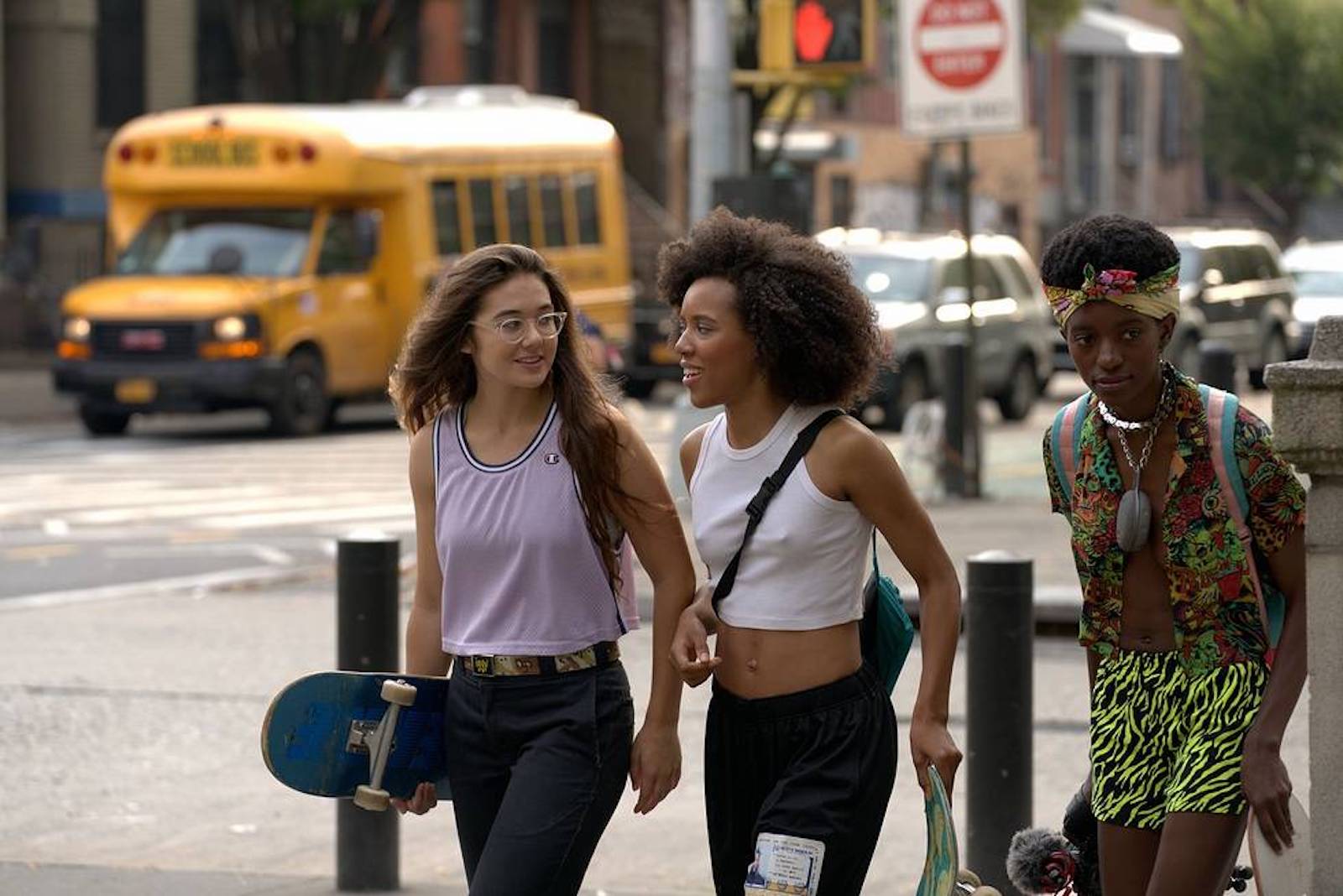
Back in the 1980s, ‘Betty’ was one of the slang terms used for female skaters. It was later tossed around to describe girls who ‘hung out’ around parks but never actually got on the board. Though the latter is likely due to an inherent prejudice toward women in sports, there’s a new series on HBO that pretty much bombs any previous understanding of the word. Taking back the term and what it means to be a female in general, Betty is the fictionalized, documentary-style story of five female skaters in New York.
When Rachelle Vinberg and Nina Moran met Crystal Moselle one day on the subway, they had no idea she’d become their future director, let alone close friend. What began as a critically acclaimed coming-of-age film, Skate Kitchen, tastefully evolved into an HBO series that tears down leftovers from the patriarchy while wholesomely building up camaraderie and empathy.
Moselle’s documentary-narrative, Betty, directly mirrors the personalities and experiences of the real life female skate crew. Rachelle Vinberg, Nina Moran, Ajani Russell, Dede Lovelace, and Moonbear play versions of themselves in the show, drawing from their own emotions to reenact scenes.
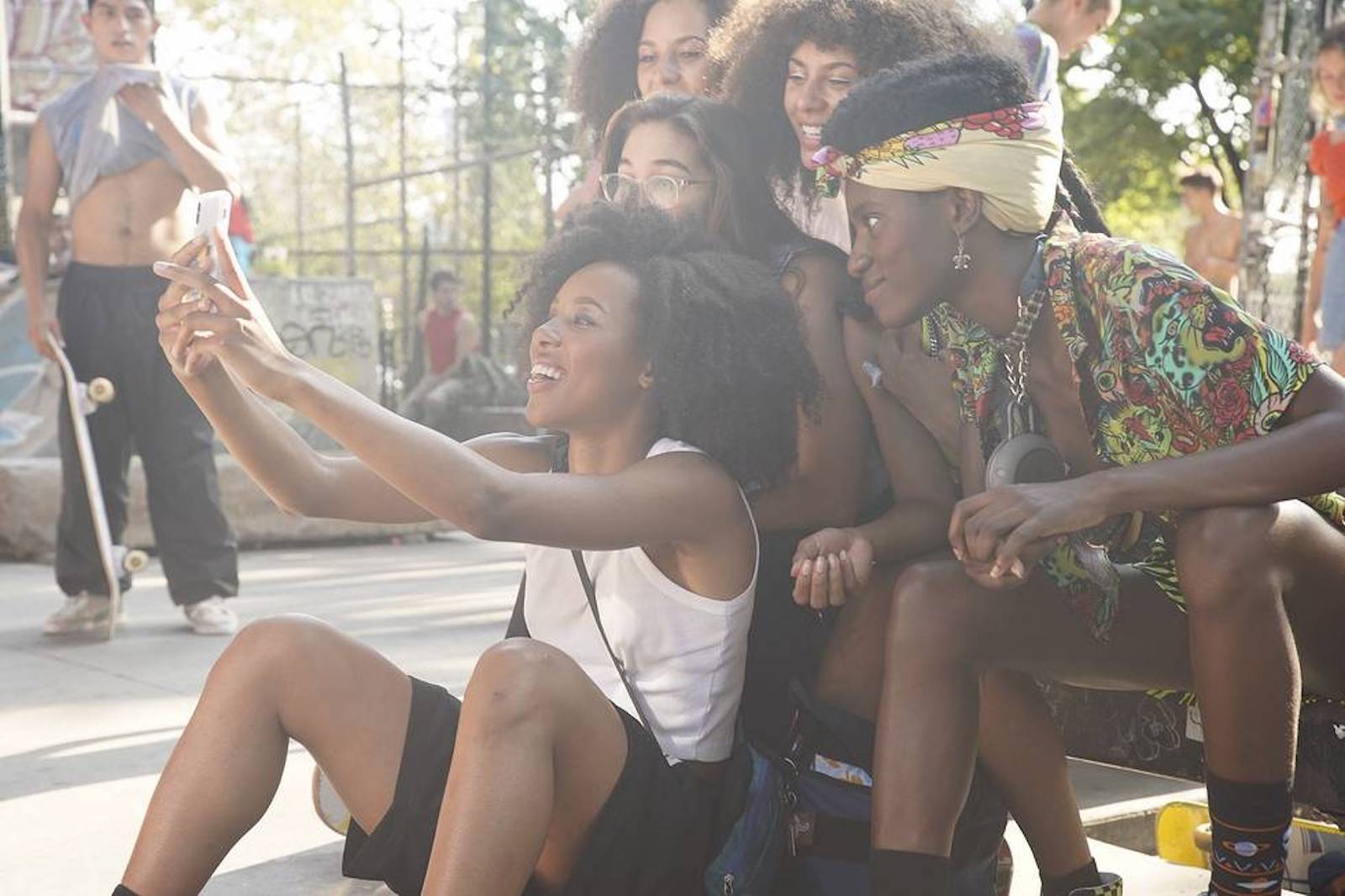
“There’s a great line of communication because they really want to know what it’s like being in this subculture and we’re able to tell them.” Dede, who plays Janay in Betty, talks about Crystal’s directing style.. “She’s very open to what we have to say. If we feel like something is maybe a little bit off…we’ll tell her, and she’ll explore that.”
In a time when it is essential that both female and black voices are in focus, the series highlights crucial issues like gas lighting and racism in a way that is informative and relatable. Ladygunn spoke with the cast about self work on and off camera, male dominated spaces, and the socio-political movements of today.
Rachelle, Crystal says she overheard you and Nina having a conversation on the subway, that started it all. What was that conversation?
Rachelle: There’s two different conversations. I remember something different than Crystal, haha. We don’t know who’s right. What I remember – Nina used to teach kids how to skate and she was telling me about the dad; she was pissed about the way he was treating her. But according to Crystal she was talking about a girl that she really liked. Both are funny.
How has your relationship changed from being friends to co-stars?
Moonbear: It seems the same to me, just more intense…
Rachelle: I mean you really get to know people. That’s true with friendships too, but you can get away from each other if you want. With co-stars, you have to be there when you don’t want to be there or when you’re not in a good mood. So we have seen each of our highs and lows. Would you guys agree with that?
Ajani: You don’t always see people when they’re awake, you know, at 4am. It’s the mornings that we really got to know each other.
Dede: I don’t feel like it’s changed, really, but I do believe, like everyone else said, how you get to understand a person on multiple levels. Being friends…and also working. It’s around the clock!
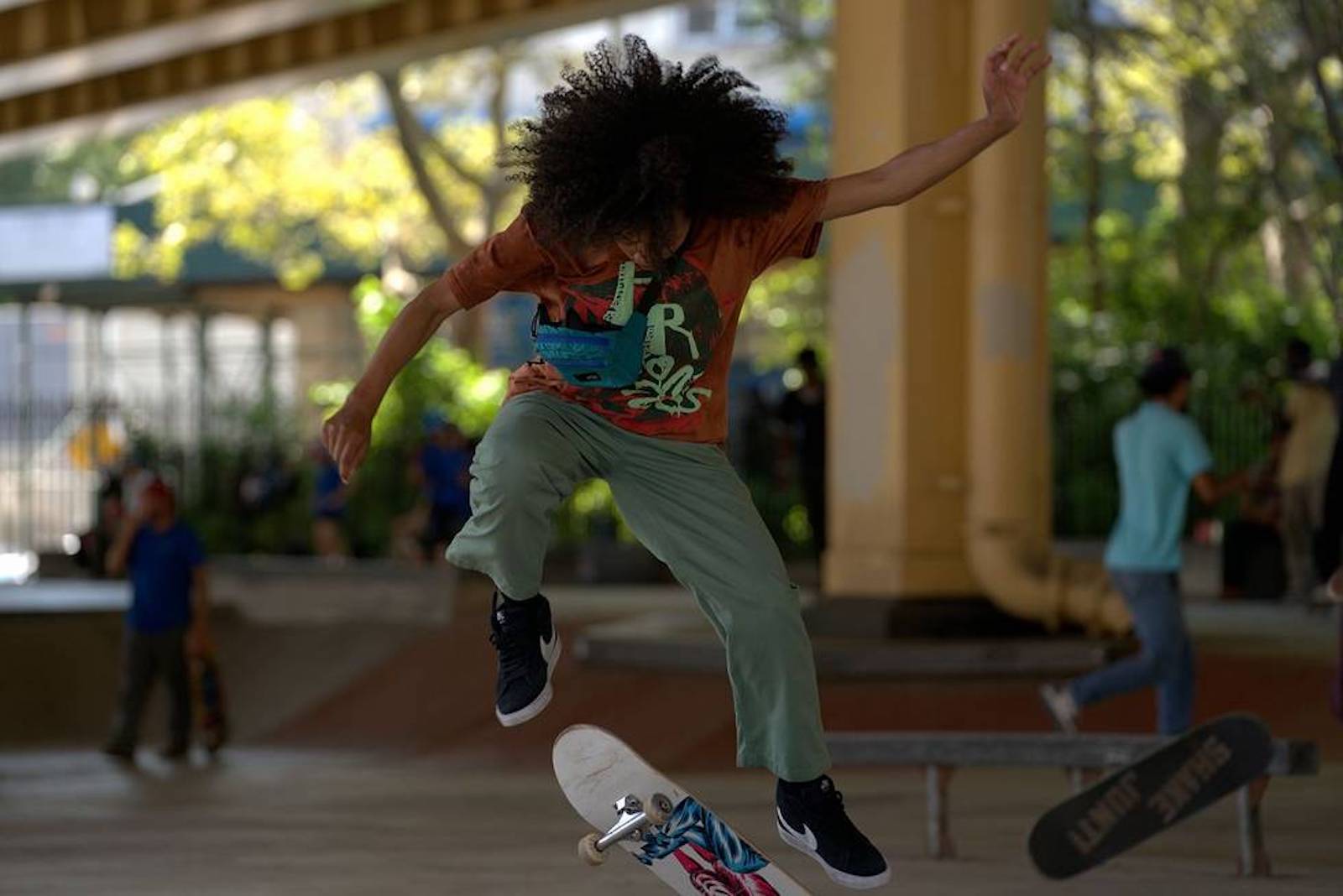
Ajani: I think we learned to communicate with each other a lot better as well. On our own, without a mediator, without any outside influences. Like, “I have to get this off my chest, we have to have a family meeting now,” type of situation instead of going around the bush, convoluted dialogue that doesn’t really say anything. I think we’ve gotten a lot better at articulating our feelings. Cause we don’t have time to waste anymore. Of course, it’s still a learning experience, everything we’re going through. We’ve all grown so much.
The series feels so personal, almost as if there’s self work going on that we’re seeing on screen. What was your relationship like with Crystal Moselle and her as a director?
Dede: Crystal’s style of directing [is] following the script but also improvising. She likes to explore through the scenes a lot. We’ll do it on script and then she’ll direct us and she’ll say, “I want to see what this looks like, just improv it.” Because it is our lives and it is something that we’re familiar with so she wants to be able to see what we can find in that scene.
There’s a great line of communication because they really want to know what it’s like being in this subculture and we’re able to tell them. She’s very open to what we have to say. If we feel like something is maybe a little bit off or not so true to our narrative or the environment, we’ll tell her and she’ll explore that.
Where do you think the prejudice comes from girls in sports and why are they wrong?
Rachelle: This goes back far, but there’s different kinds of it. There’s one kind, where they don’t think girls should be skating. Another version is getting attention, and that comes from feeling entitled to something. Like “They shouldn’t be getting free boards, I should be getting free boards cause I’m better than you.”
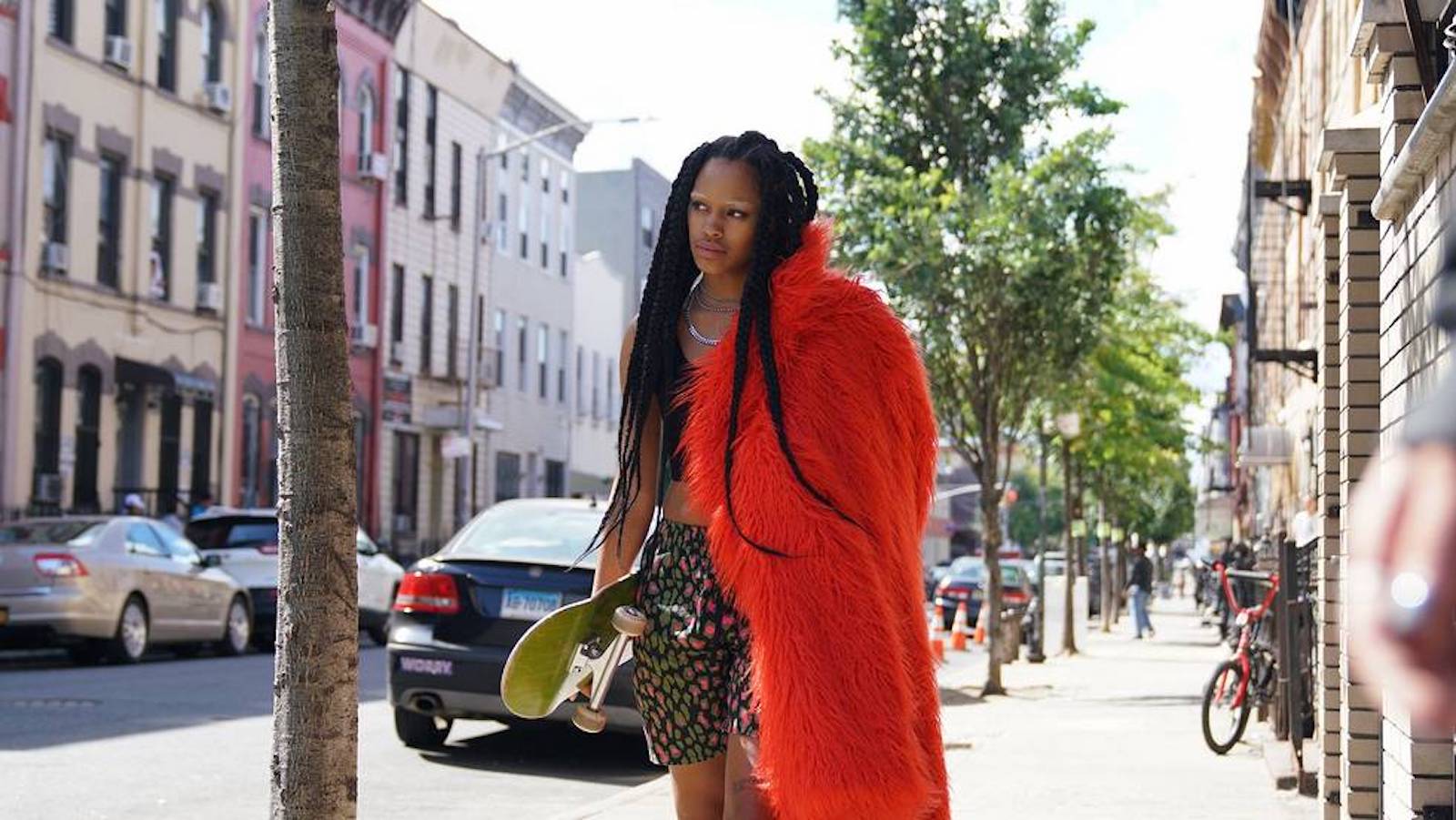
Then there’s the subconscious, “Oh you’re so cute. I want to help you.” Still, you’re different. It’s a combination of all that. Right now I think it’s strongest on social media, with people feeling entitled and angry at girls. It’s becoming more popular for us and we’re actually enjoying this shit because we like it and they don’t like the femininity in it. But then there are boys who embrace that shit and are genuine. Overall, it comes from feeling territorial.
Moonbear: I think it comes from people feeling insecure and from people wanting to have power. That combination is a disaster. And that goes for a lot of different things in the world, not just skating.
Rachelle: It’s kind of funny, how they get so angry about a sport that’s completely individual. Like, how is this affecting you really?
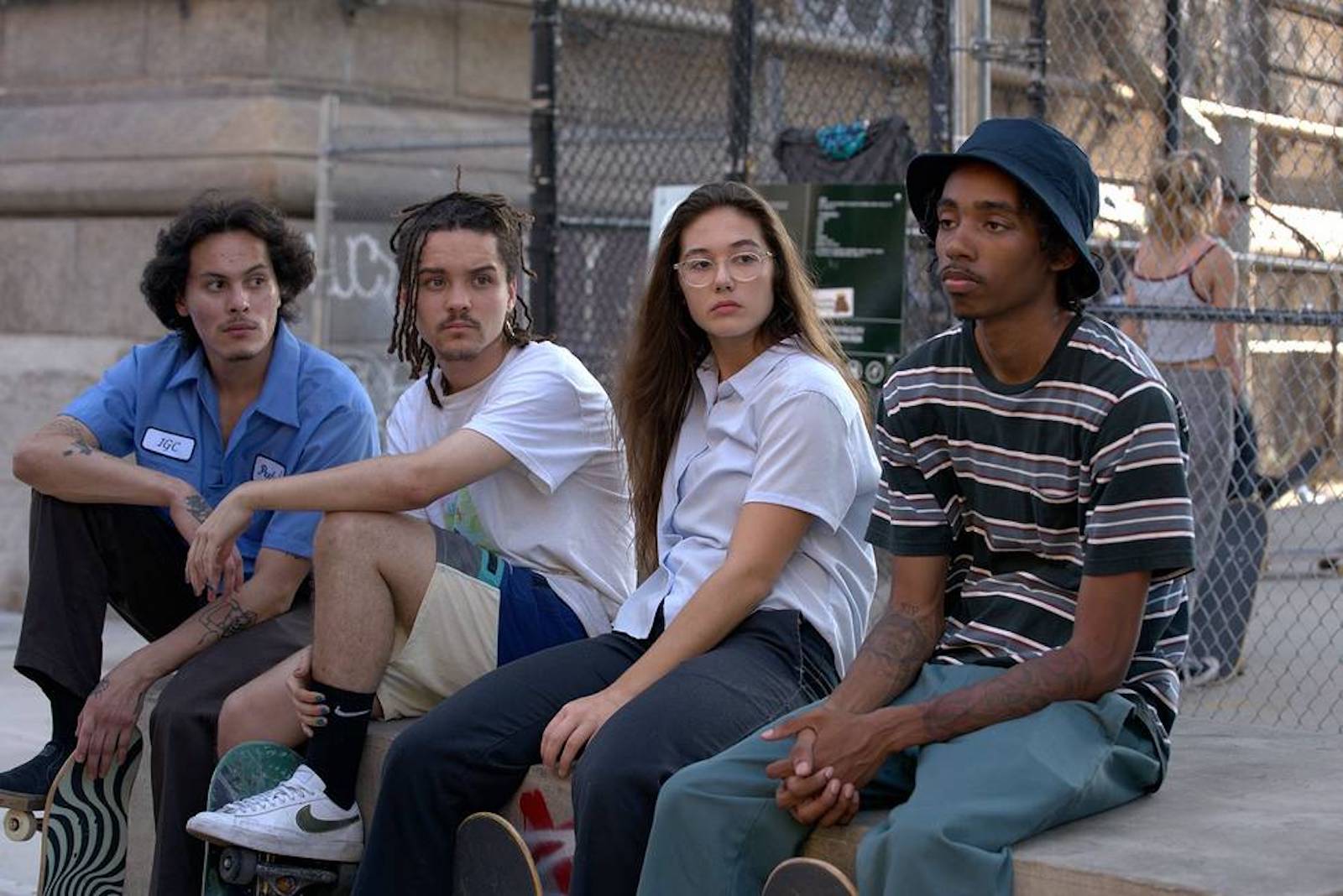
How much does self doubt play a role in learning?
Ajani: Self doubt was, is still, my biggest obstacle when i’m skateboarding. If you don’t commit you WILL get hurt. I started skateboarding when I was 17 and everybody around me was so good.
This is back four years ago when I met these girls. They were the only other girls I’d see at the skate parks, and I’d be like, “They’re so good…how am I gonna keep up??” But Nina would be like – “You can’t say you can’t skate. You’re on the board skating.” And that definition: what is a skateboarder? You’re not a skater because you can’t do tricks? No. You ride a skateboard therefore you are a skateboarder.
Dede: I think it’s a mentality. You are your biggest obstacle. You have some people who are fearful and doubtful but are like – I still wanna skate. It plays out differently for every person. You can get yourself in the mindset you want to be in if you train yourself to get there.
Right on. Moonbear, I noticed on your instagram you’re doing no beer in 2020?
Moonbear: I’m not drinking any alcohol this year. And it’s kinda good that all the bars are closed, so I can’t go drink! I do a challenge every year. Last year was no Instagram and the year before that I was vegan for a year.
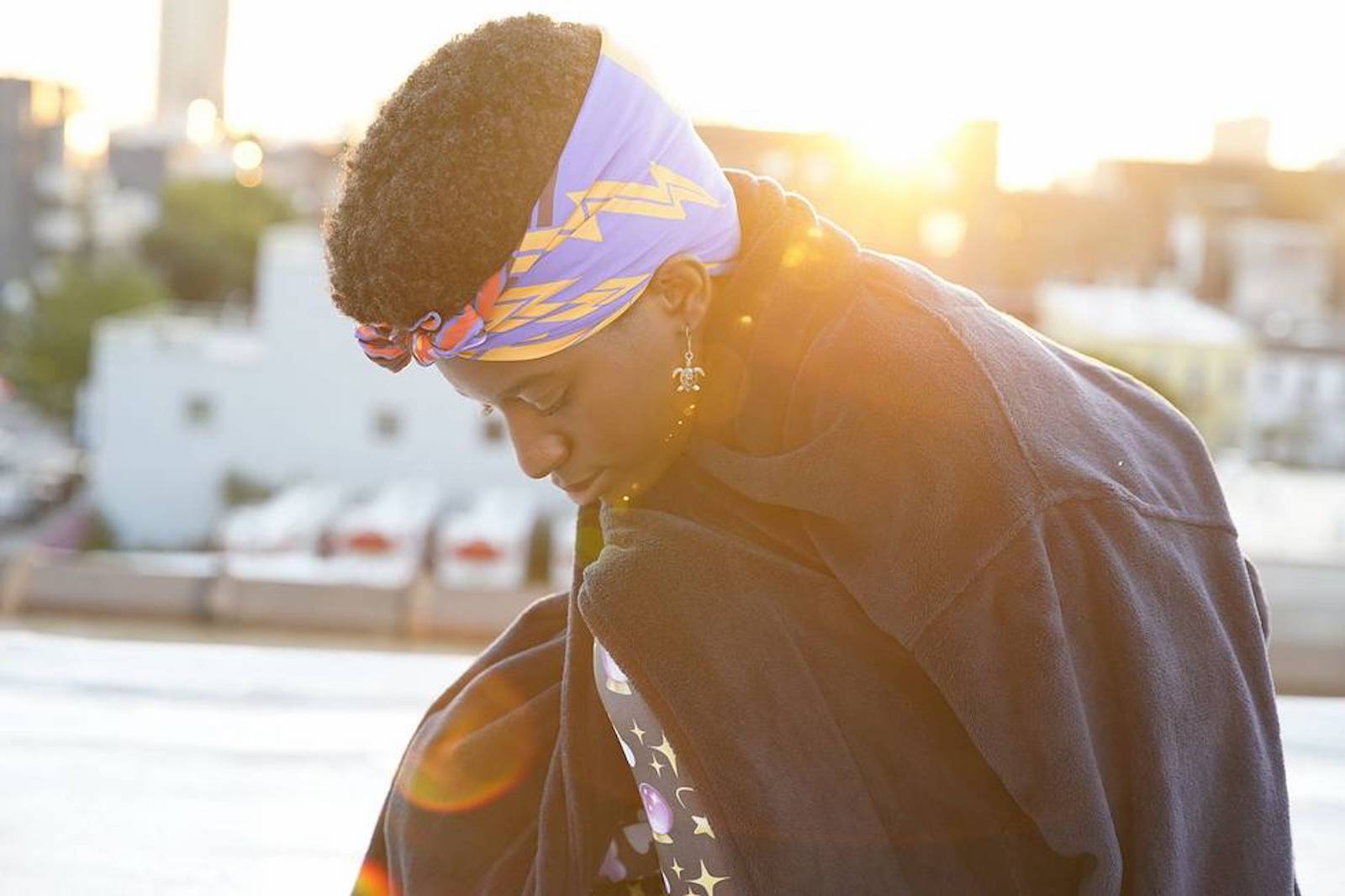
How did you feel not doing instagram?
Moonbear: Oh that felt so good. I didn’t have to worry about what to post…because the year before that when I was vegan I was also posting an Instagram post every single day so…I was relieved not to have to worry about that.
Dede – the gaslighting scene was so moving, but I’m sure it was difficult at times. Can you talk a little bit about how it felt to film that?
Dede: Oh my god. I was so nervous the whole day because I knew what I had to do. I was workshopping the scene and I felt good about it, but then I got on the set…and I was really in my head.
Going into it, I was – again – my biggest obstacle in that scene. I definitely had something that I could pull from and relate to to get Janay to that point but it was challenging for me. But Donald – Caleb – is really great and good to work off. Being able to do the scene a couple different ways helped. Because we all know what that feels like, but it was definitely challenging.
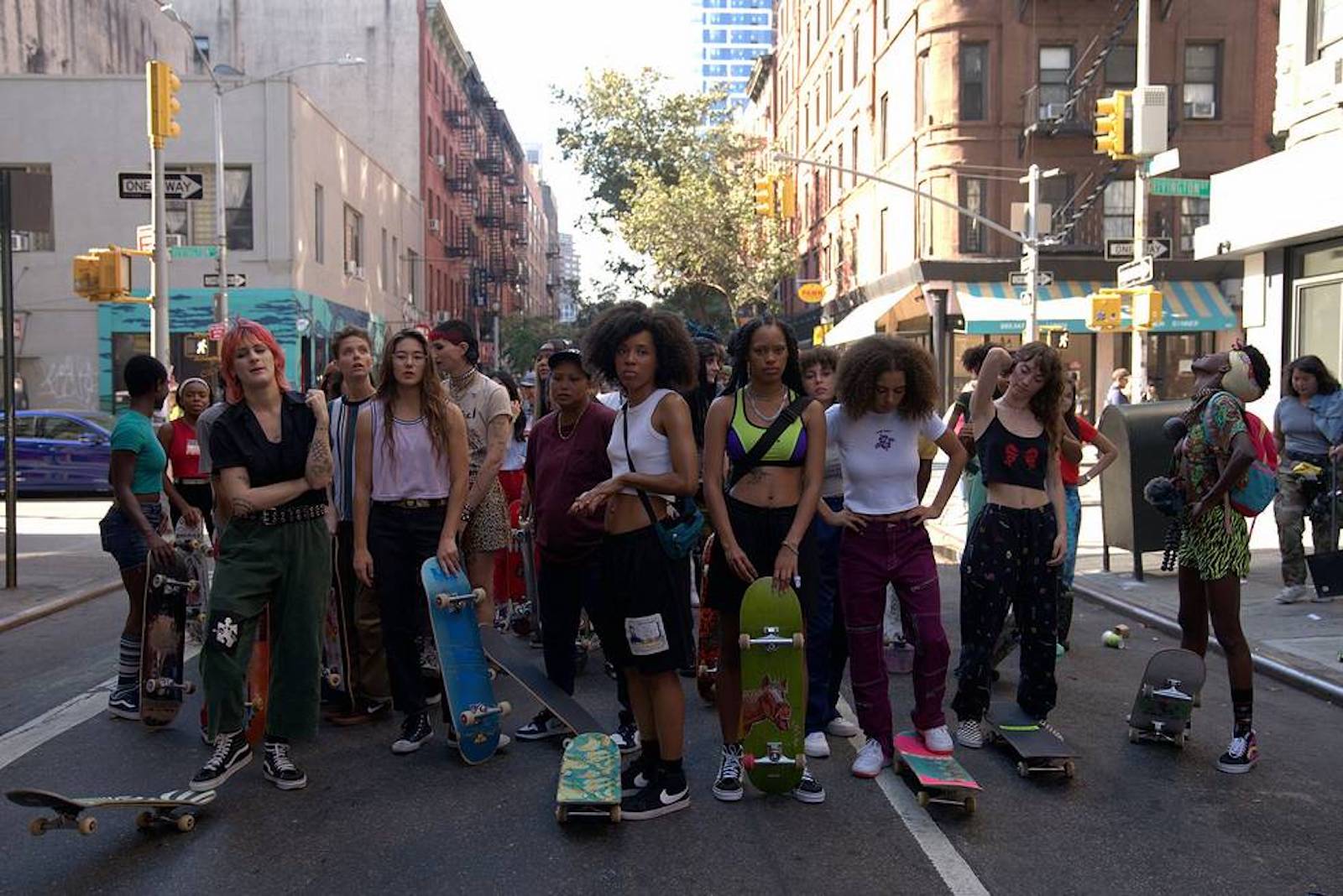
It comes across. I was really pleasantly surprised that this was more than just a rad skating series. Betty talks about real situations that women go through, gaslighting being just one of them. What are your thoughts on the current political and social climate?
Ajani: The current political climate is not shocking to me. I have witnessed, experienced and been a victim of overt and covert examples of racism my whole life. The system that we are all functioning in today operates under capitalism which is riding on the back of white supremacy. This system reaps the benefits by exploiting black and brown communities. It has for centuries but we are finally collectively acknowledging it and are looking through a magnifying glass at how it permeates through the majority of the things we see and do. Black people have been on a long arduous journey towards simple human rights. Yes, we are still being denied basic human rights but It is important that we move forward with compassion not hatred. We must uplift black voices, and that means ALL black voices. Black queer voices, black trans voices, black disabled voices, no one gets left behind. Yes we must respond to the calls to action to protest, but we must also take the time to heal and grieve for all of the pain and ancestral trauma that has been inflicted upon us. to my black community: I see you, I support you, I’m sending love to all of you. Thank you for your time and energy and spirit.
Dede: In regards to our circumstances, the first step is acknowledging the issues and how we treat each other. The next step is to shift our awareness into action and educate ourselves on how to be better. Change won’t happen in a week or year, these are habits that have had decades to fester, we have to keep challenging these issues with patience and love.
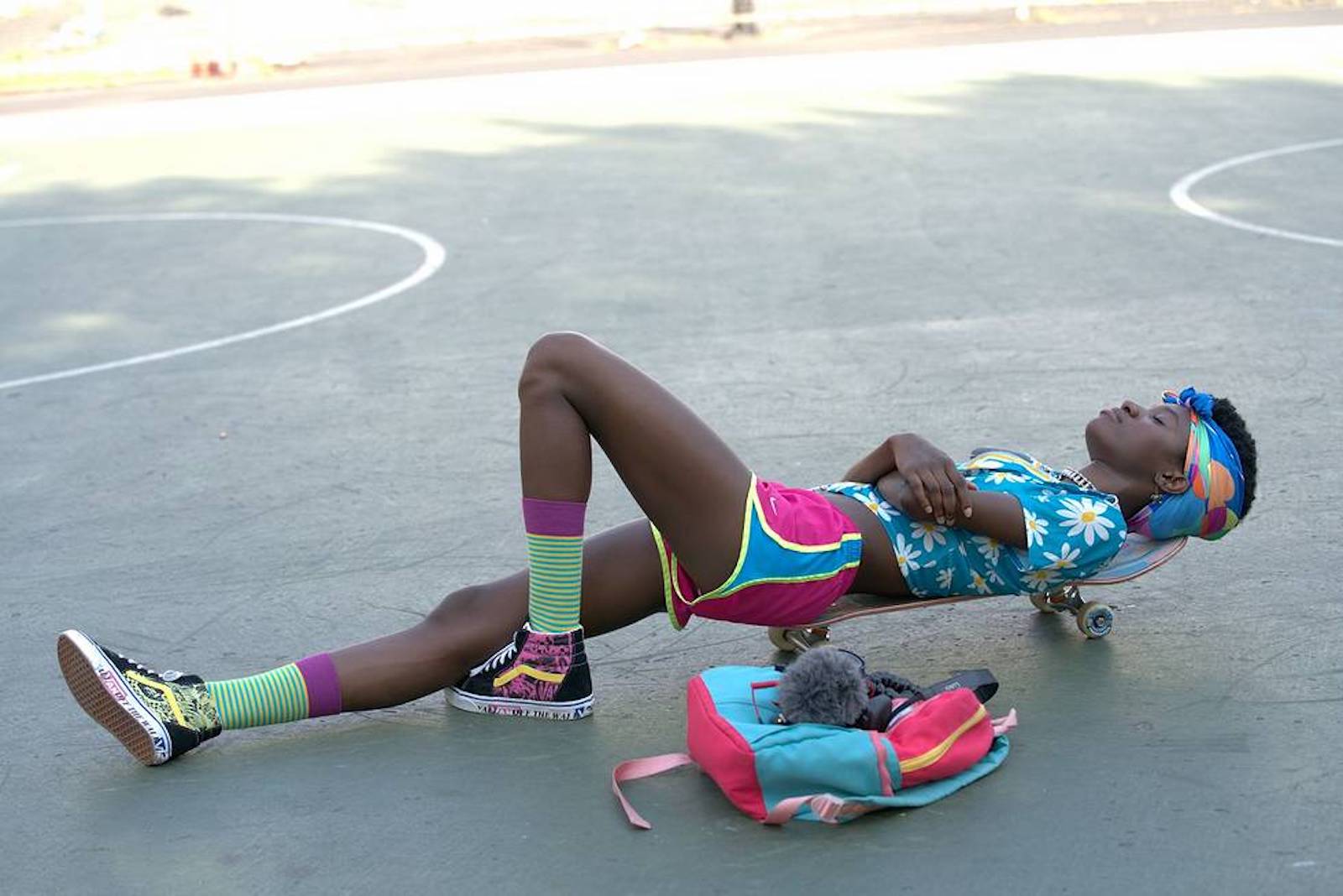
Moonbear is a musician, vlogger, and the occasional DJ.
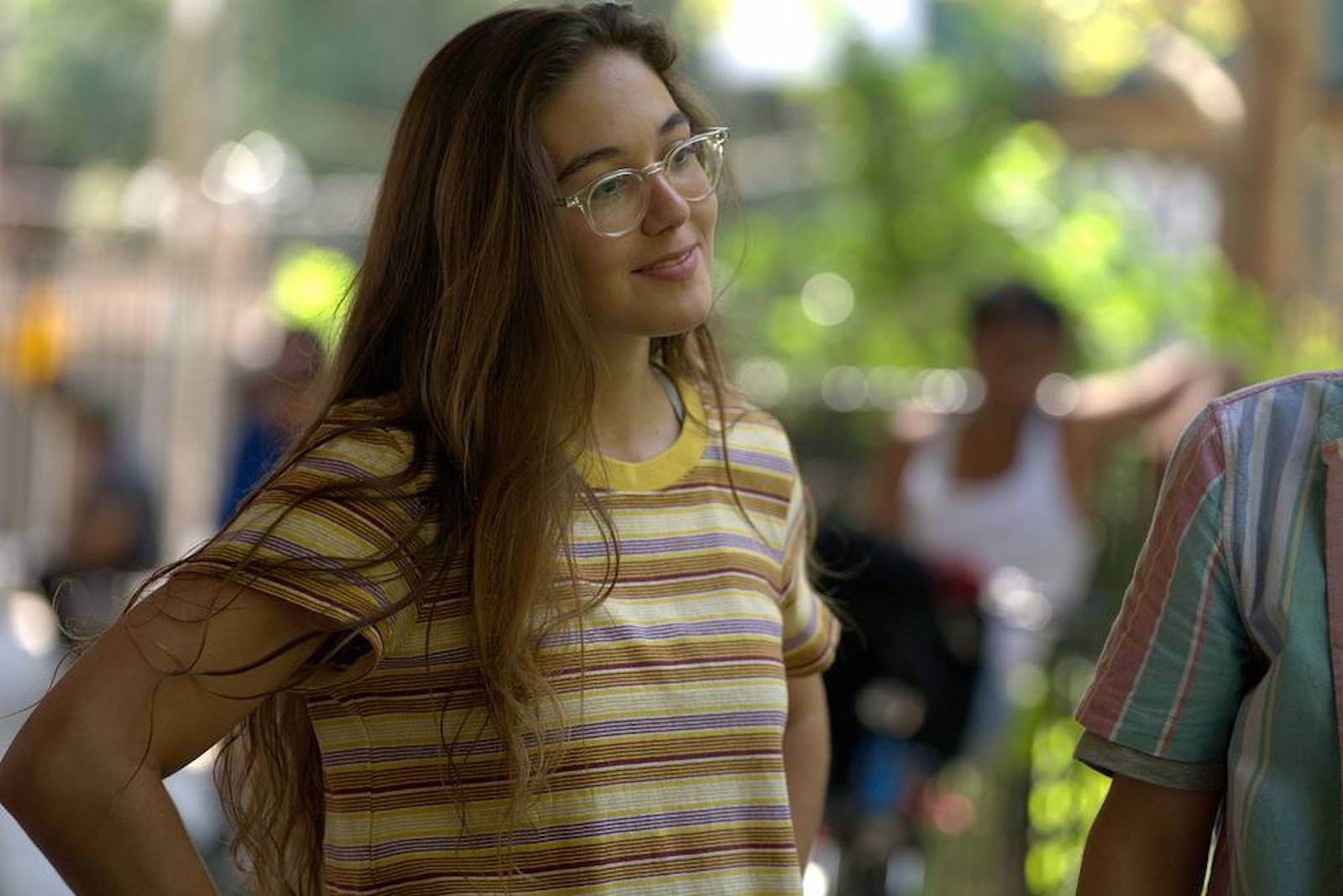
Rachelle is in school for screenwriting and makes short films.
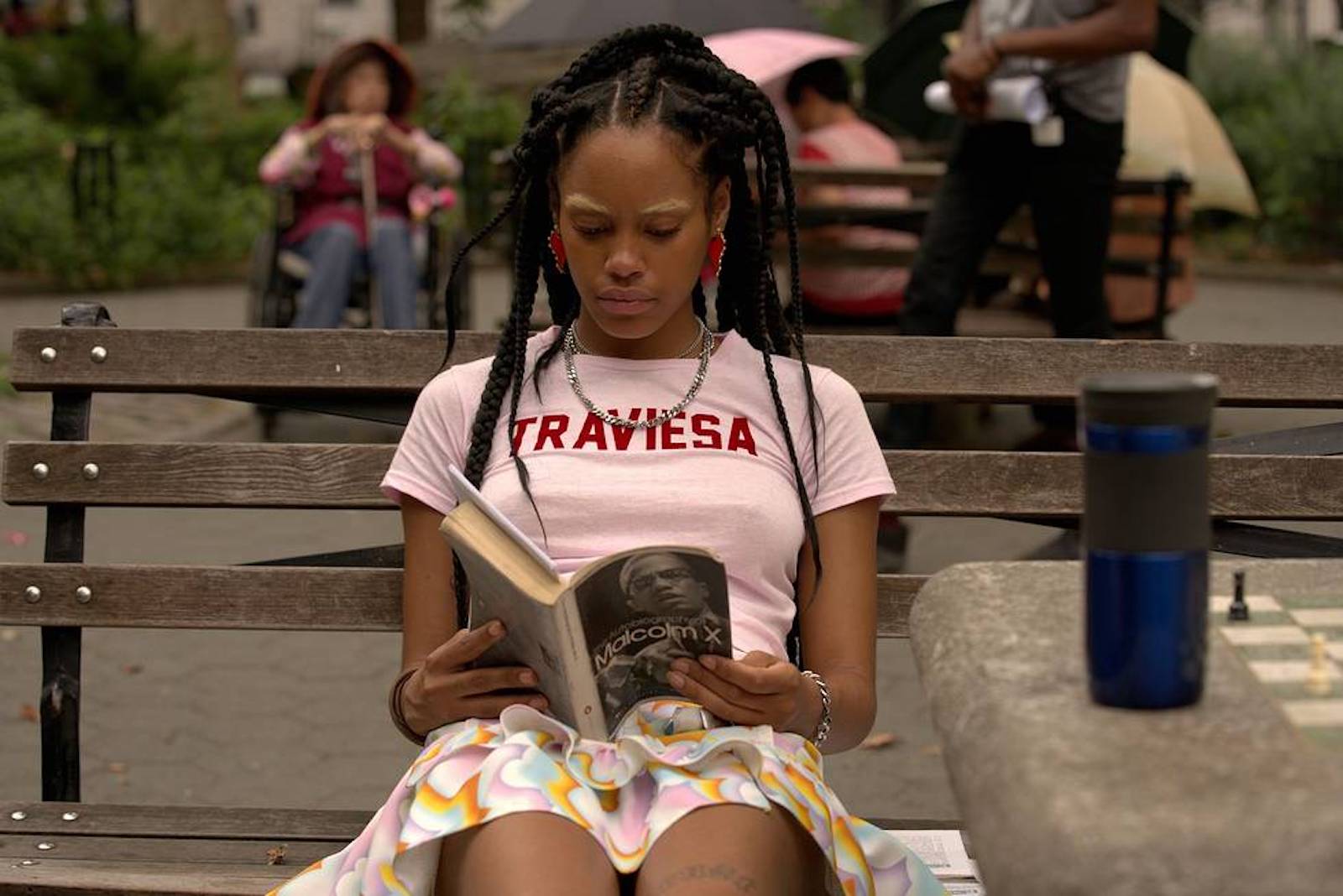
Ajani is an artist: painting, sculpture, photography, VR, and practically everything else.
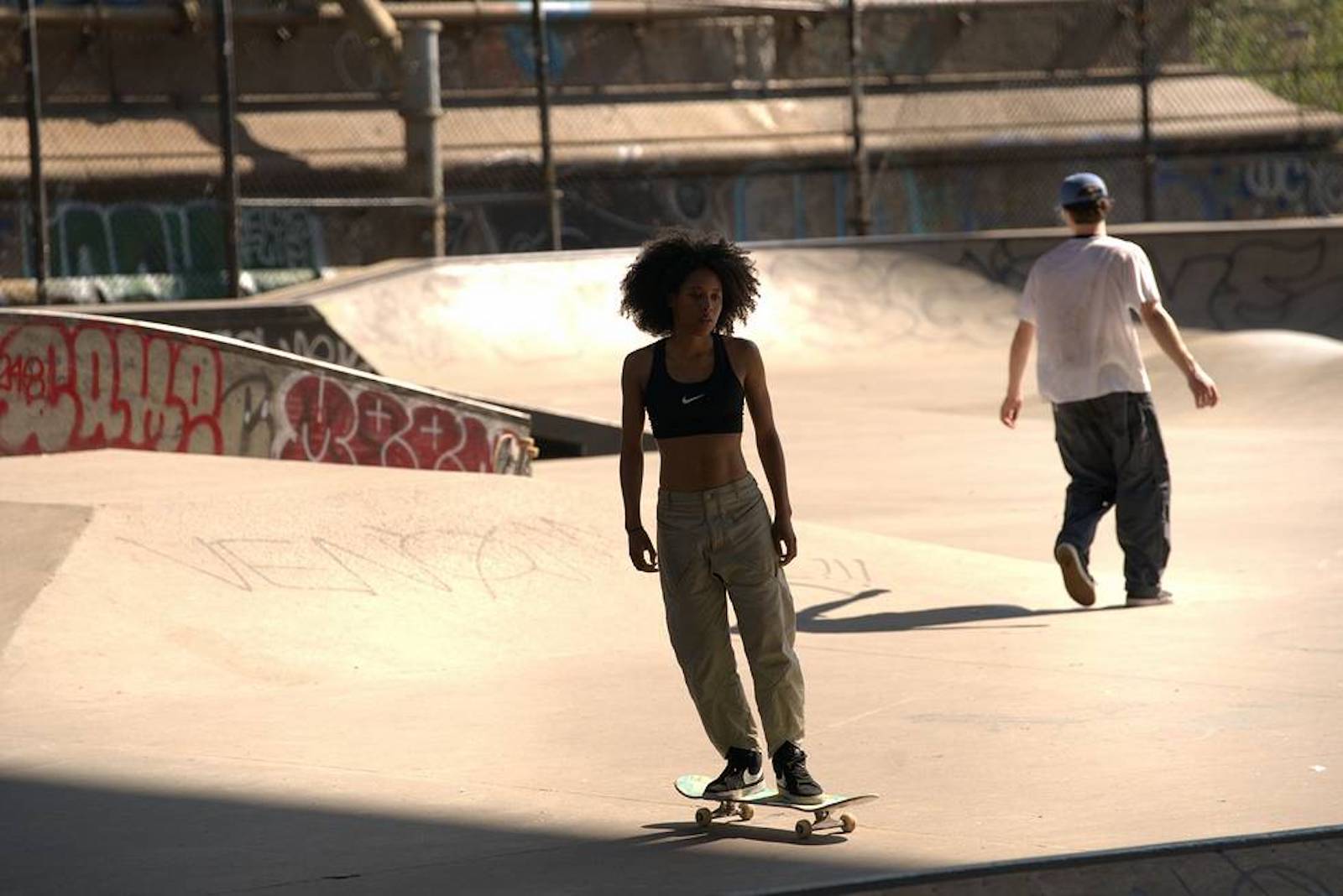
Dede is a DJ, oil paint expert, and working on her degree in marketing and advertising at FIT.
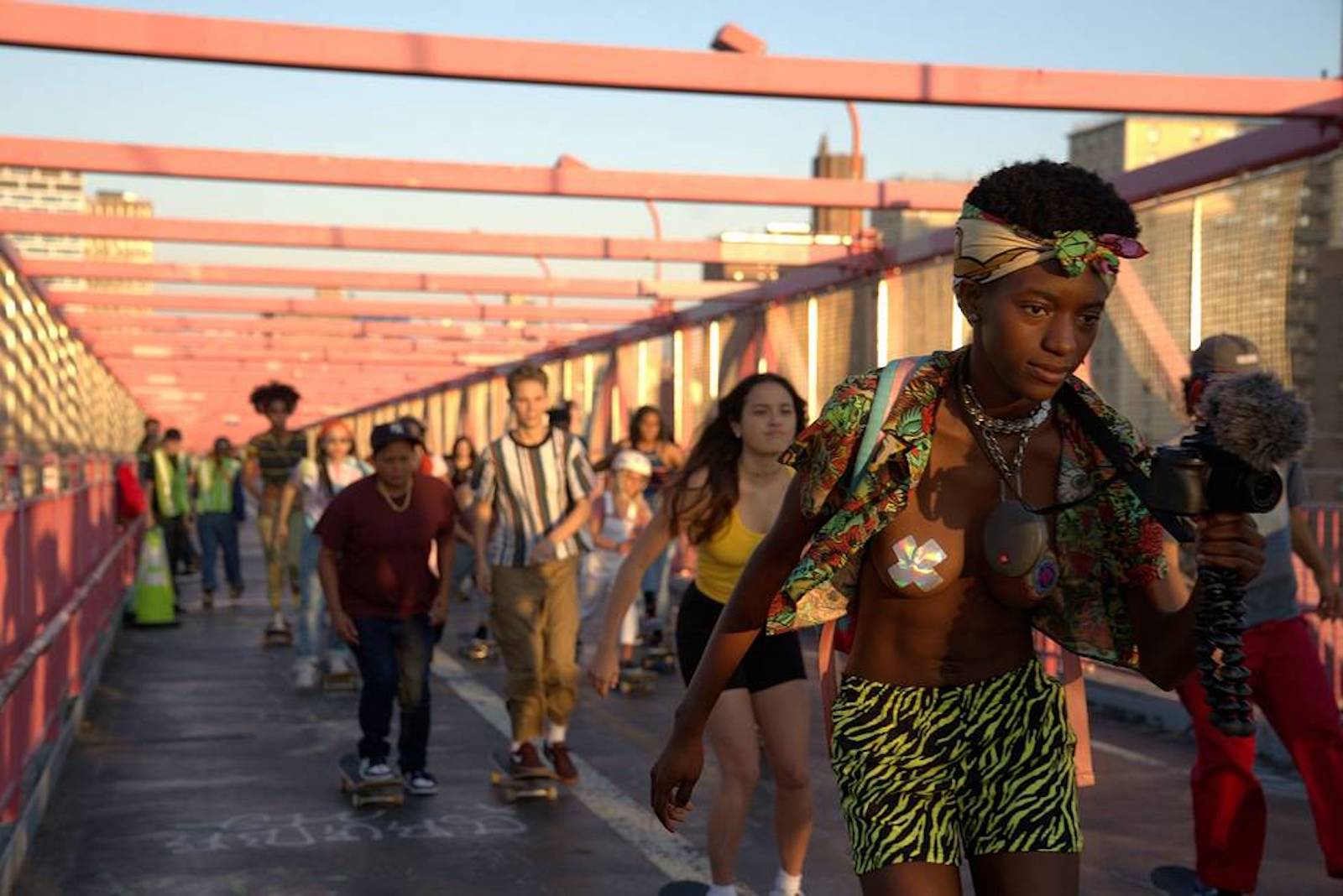
photos / courtesy of Betty
story / Ariana Tibi
